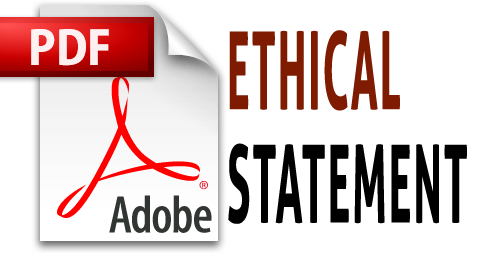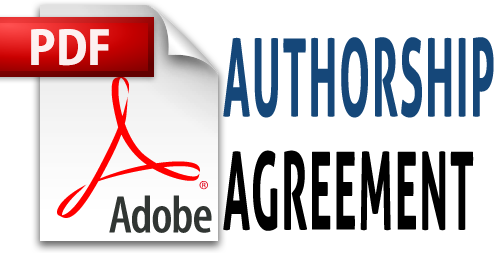ANALISIS DAMPAK INOVASI “LAKONE SMART COFFEE ROASTER” TERHADAP PROGRAM PEMBERDAYAAN MASYARAKAT KOPI KANG!
Abstrak
Kopi sebagai salah satu komoditi hasil perkebunan mempunyai peran cukup penting dalam kegiatan perekonomian di Indonesia. Kopi juga salah satu komoditas ekspor Indonesia yang cukup penting sebagai penghasil devisa negara selain minyak dan gas. Selain peluang ekspor yang semakin terbuka, pasar kopi di dalam negeri juga masih cukup besar. Melihat potensi kopi yang baik di Desa Cipaganti, Kabupaten Garut, sekaligus dalam upaya untuk menjaga habibat kukang Jawa dan melestarikan hutan Gunung Papandayan, PT Pertamina Fuel Terminal Bandung Grup bekerjasama dengan kelompok tani buana lestari mengembangkan program pemberdayaan masyarakat Kopi Kang!. Tanggung jawab perusahaan (CSR) dapat diwujudkan dengan merespon isu lingkungan, sehingga dapat memberi manfaat yang lebih luas pada sosial dan ekonomi. Sebagai perusahaan yang telah meraih PROPER Emas sebanyak empat kali, PT Pertamina Fuel Terminal Bandung Group harus menerapkan inovasi-inovasi baru dalam program pemberdayaan masyarakatnya. Maka pada tahun 2023 diterapkan inovasi LAKONE Smart Coffee Roaster di program Kopi Kang! yang memanfaatkan teknologi digital dan internet of things (IoT) dalam prosesnya. Dampak dari inovasi ini kemudian diukur menggunakan metode sustainability compass dan dihasilkan manfaat ekonomi berupa penghematan pembayaran listrik sebesar Rp 101.129,- per bulan, manfaat lingkungan berupa penurunan emisi berupa CH4 sebesar 0,0163 ton CO2 eq/tahun dan CO2 sebesar 0,0071 ton CO2 eq/tahun, manfaat sosial berupa 423 orang penerima manfaat baik langsung maupun tidak langsung serta manfaat kesejahteraan dimana tidak ada difable yang mengalami kecelakaan kerja akibat proses penyangraian kopi.
Coffee as one of the commodity plantation products has an important role in economic activities in Indonesia. Coffee is also one of Indonesia's export commodities which is quite important as a foreign exchange earner besides oil and gas. In addition to the increasingly open export opportunities, the domestic coffee market is still quite large. Seeing the potential for good coffee in Cipaganti Village, Garut Regency, as well as in an effort to protect the habitat of the Javan slow loris and preserve the Papandayan Mountain forest, PT Pertamina Fuel Terminal Bandung Group in collaboration with the Buana Lestari farmer group developed the Kopi Kang! community empowerment program. Corporate responsibility (CSR) can be realized by responding to environmental issues, so as to provide wider social and economic benefits As a company that has won Gold PROPER four times, Pertamina Fuel Terminal Bandung Group must implement new innovations in its community empowerment program. So in 2023 the LAKONE Smart Coffee Roaster innovation is implemented in the Kopi Kang! program that utilize digital technology and the internet of things (IoT) in the process. The impact of this innovation was then measured using the sustainability compass method and produced economic benefits in the form of savings in electricity payment of IDR 101,129 per month, environmental benefits in the form of reduced emissions in the form of CH4 of 0.0163 tons of CO2 eq/year and CO2 of 0.0071 tons of CO2 eq/year, social benefits in the form of 423 direct and indirect beneficiaries as well as well-being benefits where there are no difable people who experience work accidents as a result of the coffee roasting process.
Kata Kunci
Teks Lengkap:
PDFReferensi
Agrawal, A., & Gibson, C. C. (1999). "Enchantment and Disenchantment: The Role of Community in Natural Resource Conservation." World Development, 27(4), 629-649.
Alsop, R., & Heinsohn, N. (2005). "Measuring Empowerment in Practice: Structuring Analysis and Framing Indicators." The World Bank.
Aqiela, L., Raharjo, S. T., & Resnawaty, R. (2018). Implementasi Program Corporate Social Responsibility (CSR) El-Corps. Share: Social Work Journal, 8(2), 211-218.
Brokamp et.al. 2023. Sustainability Compass Navigating dynamic sustainability landscape. Delloite.
Elkington, J. (1994). Towards the sustainable corporation: Win-Win-Win business strategies for sustainable development. California Management Review, 36(2), 90–100.
Fitriani, dkk. 2022. Analisis dampak Program Pemberdayaan Masyarakat “Kopi Kang!” dengan Menggunakan Social Return on Investment (SROI). Jurnal Pendidikan Dan Konseling Volume 4 Nomor 5 Tahun 2022. Universitas Pahlawan Tuanku Tambusai
https://www.gsb.stanford.edu/experience/abou t/centers-institutes/csi/defining-social- innovation. Diakses tanggal 23 Agustus 2023
Kumar, N., & Quisumbing, A. R. (Eds.). (2011). "Gendered Impacts of Globalization: Employment and Social Protection." Routledge.
Natufe, OI. 2001. The Problematic of Sustainable Development and Corporate Social Responsibility: Policy Implication for the Niger Delta. Dokumen. Dapat diakses: http://www.urhobo.kinsfolk.com/confe rences/secondanualconfrence/confrenc ematters/natufe.htm.
Prasetiyo, Erwan Eko. 2017. Aplikasi Internet of Things (Iot) Untuk Pemantauan Dan Pengendalian Beban Listrik Di Ruangan.). Jurnal Teknika STTKD Vol.4, No. 2
Raharjo, S. T. (2019). CSR Relasi Dinamis antara Perusahaan Multinasional dengan Masyarakat Lokal. ITB Press.
Schroeder P. 1992. Carbon storage potential of short rotation tropical tree plantations. For. Ecol. Manage. 50: 31-41.
Situmeang, I. V. O. 2016. Corporate Social Responsibility di Pandang dari Perspektif Komunikasi Organisasi. Yogyakarta. Ekulibria.
Undang-Undang Nomor 40 Tahun 2007 tentang Perseroan Terbatas dan juga Peraturan Pemerintah Nomor 47 Tahun 2017 tentang Tanggung Jawab Sosial dan Lingkungan Perseroan Terbatas
World Business Council for Sustainable Development. (2000). Corporate Social Responsibility: Making Good Business Sense. Geneve: World Business Council for Sustainable Development.
DOI: https://doi.org/10.24198/jppm.v4i2.50094
Refbacks
- Saat ini tidak ada refbacks.
Jurnal Penelitian dan Pengabdian Kepada Masyarakat (JPPM) Terindeks di:








